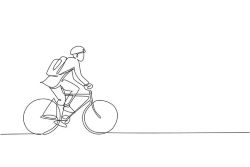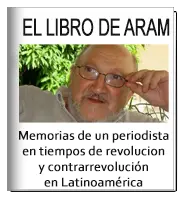Clean air for all
ArcoirisTV
- Visualizzazioni: 3105
- Lingua:
 | Sottotitoli:
| Sottotitoli:  | Licenza:
| Licenza:

- Fonte: Mostra | Durata: 8,17 min | Pubblicato il: 22-10-2008
-

- Categoria: Informaciones
- Tag: Mostra Communication
- Scarica: MP3 | MP4 | alta risoluzione
Riproduci solo audio:
Arcoiris - TV
Cars have long served as the chief means of transport in cities. Their use has risen from one year to the next: for every 100 trips, 82 are made by car, 12 in public transport and 6 by bicycle. Over the longer term, this creates two major problems: ever longer (and more stressful) traffic jams and increasingly dense air pollution in cities. The latter aspect is particularly alarming because it has a direct harmful impact on people’s health.In societies undergoing steady demographic changes, traffic has risen significantly in cities. Urban areas are sources of growth that day in and day out draw large numbers of commuters. Citizens need vehicles to go to work or school or for other activities in town. Most of the time, motor vehicles are used to travel these distances, whether short or long. The majority of these vehicles use fossil fuel (oil), which is responsible for air pollution. Road transport is responsible for more than 40% of particle emissions (particularly CO2) into the atmosphere. Given the structure of a city (height of buildings, concentration of motor vehicles, etc.), transport represents the leading cause of pollution in the urban environment.More and more European cities are organising themselves to address this problem and to develop less polluting or pollution-free means of transport. Given the increase in the number of cars, and the traffic resulting from this, other means of mobility are presented as being faster, safer and, above all, less polluting.In January 2006 the European Commission adopted a Strategy on the Urban Environment. It aims to improve the quality of life by advocating an integrated approach to environmental management, with urban development and urban transport based on the principle of sustainability. The strategy addresses issues such as air pollution, traffic and greenhouse gas emissions. It also recommends better application of legislation, particularly on air quality.Following on from that strategy, the European directive on air quality management requires cities to monitor strictly a whole range of pollutants. Local authorities must also draw up action plans to improve air quality in urban centres.Every year, European Mobility Week emphasizes the diversity of means of transport that can be used in cities. This year’s theme is ‘Clean air for all’. It will encourage inhabitants to make use of less polluting means of transport such as trains, public transport and bicycles. The week-long awareness-raising event will above all stress the connection between air pollution and citizens’ health.Mobility Week, initiated by the European Commission in 2002 in the wake of the success of the ‘In town without my car’ days, takes place yearly from 16 to 22 September in some 2,000 cities in Europe and elsewhere. The initiative serves as a platform for municipalities and organisations as they try to raise public awareness of the environmental impacts of citizens’ modes of transport. The aim is twofold: to spotlight cities’ policies for sustainable mobility and to encourage the launch of new practices over the longer term.
Download subtitles:
Download subtitles:
Per pubblicare il tuo commento, riempi i campi sottostanti e clicca su "Invia". Riceverai una email con la richiesta di conferma.



















